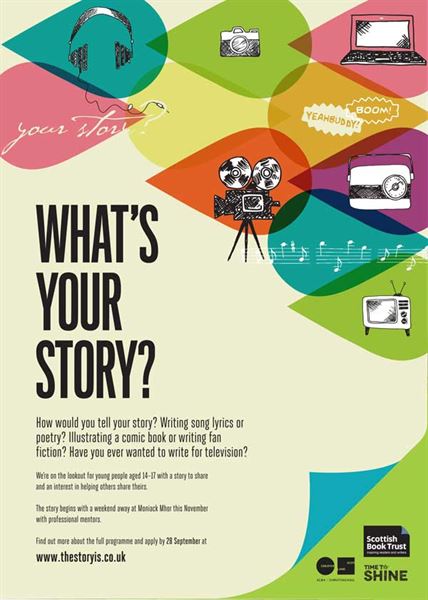Stirling’s MLitt Publishing students were recently delighted to hear from Andrea Joyce, who spoke to us about her role as Rights Director at Canongate, and what it takes for a book to successfully transcend geographical borders.
 Canongate Books is one of the biggest publishers in Scotland, currently employing about 40 people in Edinburgh and London. It has been an independent publisher since 1973, and aims to “unearth and amplify the most vital, innovative voices” with a strong international focus encompassing countries from Albania to Vietnam.
Canongate Books is one of the biggest publishers in Scotland, currently employing about 40 people in Edinburgh and London. It has been an independent publisher since 1973, and aims to “unearth and amplify the most vital, innovative voices” with a strong international focus encompassing countries from Albania to Vietnam.
Keeping Pace
Canongate’s aim to “publish authors, not books” involves a tailored approach for each project as their authors continue to explore. Matt Haig, for instance, had published two novels before venturing into non-fiction with the wildly successful Reasons to Stay Alive. Now, with A Boy Called Christmas, Canongate is delving into children’s publishing, including their first visit to the Bologna Book Fair. These kinds of challenges keep things interesting for the rights team, who are constantly expanding their networks to keep pace with an author’s needs.
Outside the publishing house, foreign markets also continue to evolve. What worked five years ago does not work now; for instance serial and book club rights are much less lucrative than they used to be. Joyce says that this time of change and uncertainty can be both exciting and frightening. Working in rights means continuously working to develop and maintain contacts and to stay up-to-date with other publishers’ lists. According to Joyce, it is essential to have an idea of who, down to the editor, a book is likely to appeal to before approaching to make a deal.
Choosing Wisely
Not every book is suitable for licensing abroad, and Canongate needs to be selective. It is important to think about a book’s potential international audience from the start, even those which are not immediately obvious. For instance, The Radleys, superficially a YA book about vampires, can also be read as a story about teenage experience, or the burial of a wild youth in middle age. As a result, this story effectively transcended geographical borders, underwent a 9-way auction for the German rights, and was ultimately published in over 26 territories.
Joyce says it can difficult to boil down the formula for major international success, but that “the common ground is universal themes and great fiction”.
Making Changes
Successfully selling rights to a book is only the first step in a process which then involves many changes before a physical copy is produced. In the majority of cases the text needs to be translated, and the cover also redesigned to appeal to its local readers.
Flexibility over a book’s contents can be crucial. For The Novel Cure, international publishers wanted permission to customise the concept to suit their regional markets, including adding different “ailments” that needed a literary “prescription”. The outcome of negotiations was that foreign publishers were allowed to change up to 33% of the content. On the other end of the spectrum, no changes were allowed to be made to Letters of Note, a carefully chosen collection of 100 unusual and inspiring letters, due to the curatorial aspects at the core of this book.
Working in Rights
Rights selling can fit in at any stage of the publishing process, from acquisition to post-publication. However, it is usually ideal if international editions can be published simultaneously. This allows foreign publishers to anticipate demand in their area and also to harness the hype generated by Canongate’s marketing team. Thus, a rights seller needs to be kept in the loop with other departments, and attuned to the stages of a book’s development.
The role doesn’t require law training, but does entail lots of contracts work, an eye for detail, and an aptitude for selling. You don’t need to be bilingual, but it certainly helps, and travel is often involved. Looking at Canongate’s 2016 rights sales by value suggests where frequent destinations might be: last year the USA and Canada held 45%, Germany held 16%, and Asia held 8% of their market.
Many thanks to Andrea for an informative talk!
by Rachel Kay




















